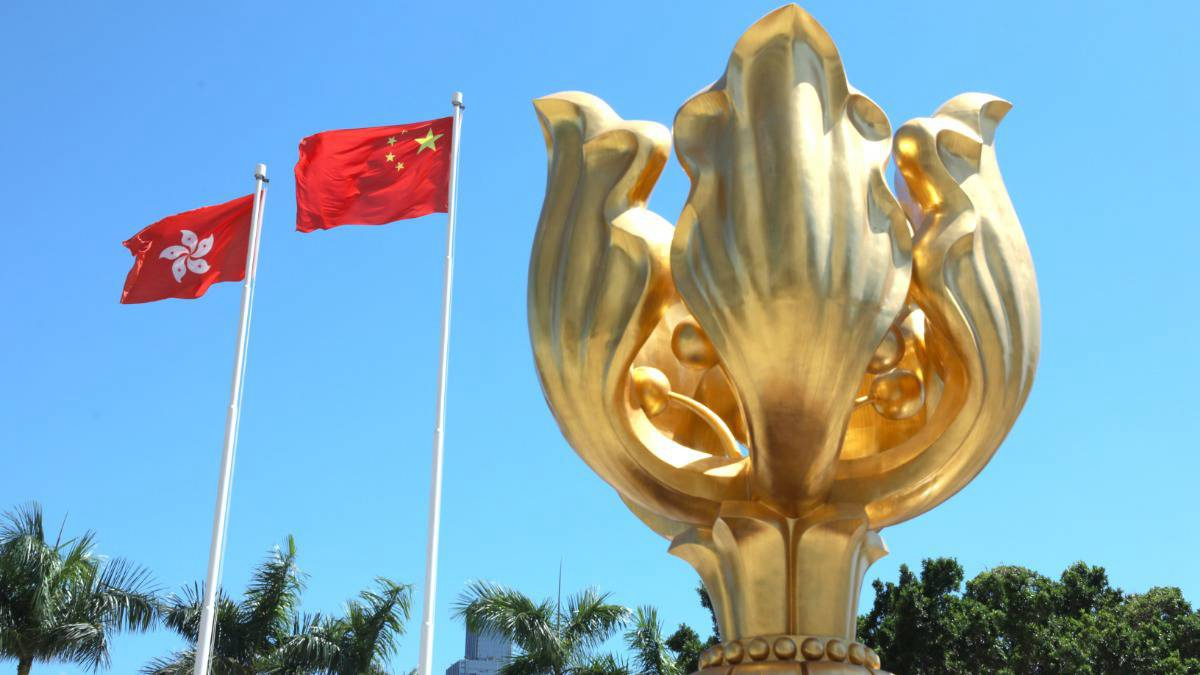
The Chinese national flag and the flag of the Hong Kong Special Administrative Region fly above the Golden Bauhinia Square in Hong Kong, China, Aug 5, 2019. [Photo/Xinhua]
Hong Kong's legal experts said they hope the national security law proposed for Hong Kong is based on the common law system — but with clearer, more specific provisions.
This way, it could avoid possible disputes over interpretation, they opined.
Their suggestions come after Chief Executive Carrie Lam Cheng Yuet-ngor said the central authorities have pledged to listen to opinions from members of Hong Kong society — including legal scholars and experts. Lam made these comments after a three-hour meeting with State leaders in Beijing on Wednesday.
Barrister Ronny Tong Ka-wah told China Daily the new law should be drafted in a way that makes it as close as possible to similar laws in Hong Kong, so it can be enforced correctly and avoid being abused under the city's common law system.
For example, the scope of "activities that endanger national security" in a provision can be narrowed down or made more specific like it is in existing Hong Kong laws, said Tong, who is also a member of Executive Council.
A few Hong Kong people are concerned about whether some of their comments would constitute offenses under the new law. Tong said there was no need to typically exclude these comments from the provisions.
According to the barrister, generally laws only make it clear what constitutes an offense, instead of having provisions stating what does not constitute one. In this case, there are certain situations where making certain comments could constitute an offense.
The proposed national security law, currently being drafted by the Standing Committee of China's top legislature, the National People's Congress, will close legal loopholes involving national security in the city. It will outlaw separatism, subversion, terrorism, and foreign interference.
Also on Wednesday, the Hong Kong Bar Association made public a letter it wrote to the NPC's Standing Committee, calling for "meaningful public consultation" and a copy of the draft law that allows more constructive suggestions.
Lau Siu-kai, vice-president of the Chinese Association of Hong Kong and Macao Studies, the nation's leading think tank on Hong Kong, said a public consultation on the drafted law in Hong Kong would delay the legislation. This would make it impossible to restore peace and social order in the city by ending violence and chaos. Moreover, the opposition camp fundamentally opposes the law, so consulting them would further delay the legislation, he added.
Lau said the central authorities would adjust the drafted law so that a national-level law could be better applied in the city.
Barrister Lawrence Ma Yan-kwok, however, warned that provisions in the proposed law should pay extra attention to protection of human rights and freedom of speech and also freedom of assembly. These values are upheld in the Basic Law.
"The law should comply with our common law system so it would not leave any doubt when being interpreted so an offender can evade liability on a technicality," said Ma, who chairs the Hong Kong Legal Exchange Foundation.
He said the draft should also make it clear what kinds of acts or information are matters of national security. Then, Hong Kong courts can avoid the dilemma of making a factual determination on their own.
But Hoffman Ma Ho-man, a member of the Chinese People's Political Consultative Conference's National Committee, China's top advisory body, has another view.
Taking a leaf from Macao, Hoffman Ma said a national security law should be based on the continental law system adopted on the Chinese mainland. This is to avoid "any confusion and contradiction with the Basic Law".
The Hong Kong businessman told China Daily he had submitted his views to the central authorities on Wednesday. This also includes making references to international standards to see what will constitute the four offenses to be covered by the new law.


